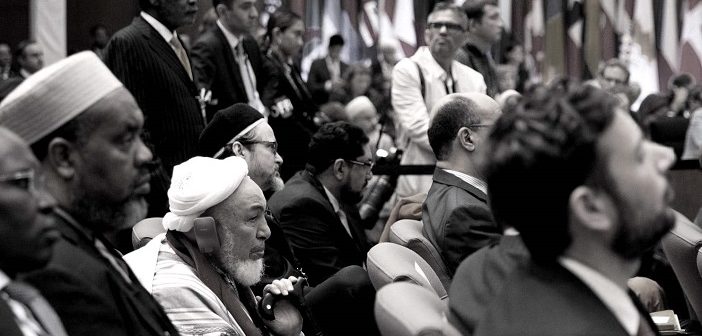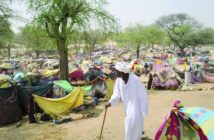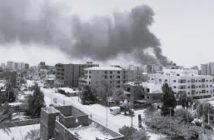The recently concluded ministerial on religious freedom hosted by the State Department on July 24th-July 26th 2018 was a unique gathering of Nations in Washington D.C., to discuss a matter of great importance…
* * *
There were several side meetings covering various topics of interest. One of the timely meetings covered the seemingly never ending carnage taking place in Syria.
The path to peace is fraught with challenges. Especially when the country is divided into three distinct spheres of influence. One is the area controlled by the Assad regime and its backers notably Russia and the Iranian/Hezbollah coalition. A second area controlled by the SDF (Syrian Democratic Forces), and its partners known as the “Global Coalition”. And the rest of the country under the control of the various insurgent groups some of which have ties to Turkey.
Now that we know who the major players are in the conflict. The question now becomes who will speak for those who are caught in the middle of the conflict? More often than not these people are often overlooked in any conflict let alone any negotiations to resolve the source of tensions.
There are parts of Syria which as a result of the war have developed a degree of autonomy. What steps will be allowed to ensure that their collective voices are heard? They have not been invited to previous attempts at peace talks in Geneva or Sochi. They have provided troops in support of Global Coalition operations against Daesh as well.
One of the concerns that is becoming clear regretfully is the apparent willingness of the Trump administration to disengage from Syria. There has been a gradual downsizing of the military footprint in the county over recent months. This appears to have morphed into not being willing to talk to its partners who have fought side by side with the US against the extremists.
This move is not in the best interest of those on the ground whether they are currently in IDP (internally displaced people) camps, those who work at Central Command in both Tampa or Qatar or even those who formulate the policy in Washington. Once again the US will garner the reputation of undercutting an ally to protect its own self-serving interests in an effort to extract itself from an uncomfortable position or end an unpopular conflict.
One potential flaw in this strategy is what happens when President Assad defeats the Militants and attempts to restore control over the country? Will this be done through negotiations and having new polls? The other solution is having this done through military force by government troops, their militia partners and outside units from Russia, Iran and Hezbollah. This track will needlessly prolong the conflict, create more IDP and potentially creating a new wave of refugees to Europe let alone more fatalities.
* * *
The situation in Syria does have a chance for success if there is a commitment to a pluralistic solution that promotes the defense of Human Rights including religious liberty, protecting the rights of women and children as well while being inclusive of all parties is paramount if Syria is to move forward.
As a concept it may take some time to implement on a National Scale by the SDF which has been able to utilize it in the area that it controls. It has to be presented as an option at one of the next Syrian conferences, the suffering has to end.






1 Comment
To speak about Human rights in Washington after decades of sponsored terrorism since 1979 and 2003, it looks more or less like if somebody would plan to organise a conference about religious freedom in Saudi Arabia, about ethnical equality in Hebron or about international brotherhood at the IMF headquarters. It just looks incredible and ridiculous all over the world. Just walk on the Damascus, Gaza, Kabul, Baghdad, Caracas, Belgrade, Seul, Cairo, Riyad, Karachi streets and ask normal people there what they think about that. They will just laugh at you. Open your eyes Mr. Morgan and hear people’s voices if you really want US moral authority to be rebuilt.